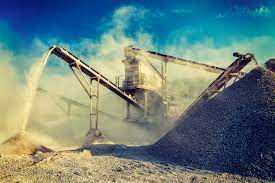India’s Mines Ministry made a remarkable announcement on Thursday—In an exciting development, Jammu and Kashmir has been found to have a staggering 5.9 million tons of lithium reserves! This newfound reserve is a major milestone for India, marking the first time that the country has recorded lithium reserves within its borders. The Geological Survey of India recently verified the presence of lithium in Salal-Haimana, Jammu and Kashmir, as inferred resources (G3). Further, the Ministry of Mines has allocated 51 mineral blocks, consisting of lithium and gold, to different state governments.
The need for Lithium, a non-ferrous metal, has skyrocketed due to its key role in electric vehicle batteries. Out of the 51 mineral blocks being offered for exploration, five are for gold mining. In addition to that, states like Jammu and Kashmir (UT), Andhra Pradesh, Chhattisgarh, Gujarat, Jharkhand, Karnataka, Madhya Pradesh, Odisha, Rajasthan, Tamil Nadu, and Telangana, are known to have resources like potash and molybdenum. These areas are also rich in base metals. Since 2018, the Geological Survey of India has been working towards exploring these resources and the information obtained has aided in the proper planning and preparation of these mineral blocks.
BloombergNEF has reported the first-ever surge in lithium-ion battery prices during the EV time, with lithium being the main component of this sector’s growth. Elon Musk has shown his annoyance towards lithium’s dramatic climb and high costs of raw materials have become an important stumbling block for Tesla. In a bid to promote electric vehicles, the government has launched several incentives amounting to around $3.4 billion. This is an effort by PM Narendra Modi to reach net zero by 2070.
Also Read: Gogoro’s All-In Approach to Revolutionize India’s Electric Vehicle Market
India’s aim is to produce the most expensive part of electric vehicles, batteries, locally in order to make them more cost-effective for the general public. This can also give India a competitive edge in the global market by becoming an exporter as the worldwide demand for electric cars increases.Mukesh Ambani is just one of many wealthy individuals who are taking a keen interest in investing in clean energy initiatives. He has pledged $76 billion for this cause and is building a battery facility for electric vehicles as part of Reliance Industries Ltd’s mission. Mukesh Ambani’s Ola Electric Mobility Pvt., Rajesh Exports Ltd. and another firm are set to get returns from the $2.3 billion initiative that enables the production of cutting-edge battery cells. This program is expected to greatly aid their development.
The need for lithium-ion batteries is on the rise globally, as a shift is happening away from gasoline-powered engines to electrified vehicles and energy storage solutions. However, India lacks a significant portion of the raw materials needed to fulfill its domestic demand for these batteries, which is expected to soar 100 times by 2030, according to a forecast by Crisil. The situation is further complicated by the high barriers to entry and China’s dominance in this sector. To address these challenges, Manikaran Power Ltd is establishing India’s first lithium refinery and looking for opportunities to acquire nickel, cobalt, and copper assets abroad.
India has a long way to go to catch up, and faces competition from other countries, including the US, which is pushing to grow domestic battery production in an effort to break China’s hold on the market.
















